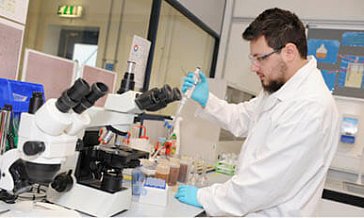
Economic
Case study
ECONOMIC: BUILDING RURAL ECONOMIES
12 May 2021
Upgrading our factories to improve energy efficiency

At British Sugar, we want to ensure our factories are as efficient as possible, so that we can reduce both our energy consumption and our carbon emissions. Through decades of driving factory efficiency improvements, we have made considerable progress, and this is another important step on the road to decarbonisation.
Fuel is burned to produce steam, which is not only used in the sugar production process when concentrating the raw juice to make sugar crystals, but also to generate electricity, that is in turn used to power the factories. At two of our sites, we also export any excess electricity to the national grid.
Since a major upgrade in the mid-1970s, British Sugar’s Newark factory has undergone many changes to improve its performance, but one part of the plant has remained relatively untouched: the original heaters used to heat raw juice. As part of our ongoing work to keep our factory equipment as up to date as possible, plans were recently put in place to upgrade the heaters.
Since these heaters are old and inefficient by today’s standards, upgrading them presented an opportunity to adopt more efficient heat transfer technology and reconfigure the heaters to extract more heat that would otherwise be wasted. As such, the upgrade also helps to reduce Newark factory’s fuel consumption and carbon emissions.
Whatever the heater technology used, heating raw juice always presents the sugar industry with the challenge of dealing with deposits on the heater surfaces. As these deposits accumulate over time, the performance of the heaters deteriorates, necessitating giving them a thorough clean. For our old heaters, this is done manually using high-pressure water jetting, which can be a time-consuming task. To improve the situation, we opted to combine a new chemical cleaning-in-place (CIP) system with the heater upgrade. With the new CIP system (pictured above), the heaters will be cleaned automatically with the press of a button, using the latest technology to increase efficiencies across site.
During the planning of the upgrade, the team leading on the work learnt of the Industrial Heat Recovery Support (IHRS) programme. Developed by the Department for Business, Energy & Industrial Strategy, the programme is designed to encourage investment in heat recovery technologies through government grants. By supporting industries to identify and exploit waste heat sources, the programme aims to reduce energy consumption and carbon emissions, contributing to the Government’s objectives of achieving low cost, clean and secure energy systems.
Demonstrating excellent teamwork and the ingenuity of our people, the team putting together the grant applications did so remotely due to the COVID-19 lockdown, with one team member even working from her home country in the Middle East. After undergoing a competitive assessment process, the applications were successful, securing more than £560,000 in grant funding.
The new heaters will be installed over two phases, with the first expected to be completed by September 2021 and the second by September 2023. Upon completion of both phases, Newark factory’s annual fuel consumption is expected to decrease by more than 19,000 MWh, the equivalent of the annual energy consumption of almost 5,000 households. Not only will this reduce the cost of sugar production, but the factory’s annual carbon emissions are also predicted to decrease by more than 3,500 tCO2/year, the equivalent of taking more than 2,400 cars off the road.






